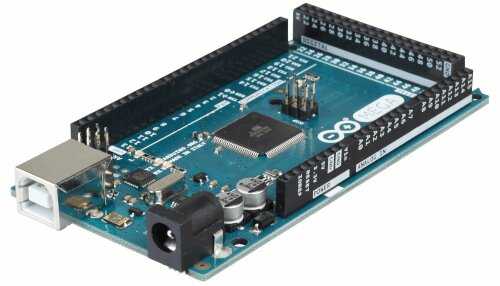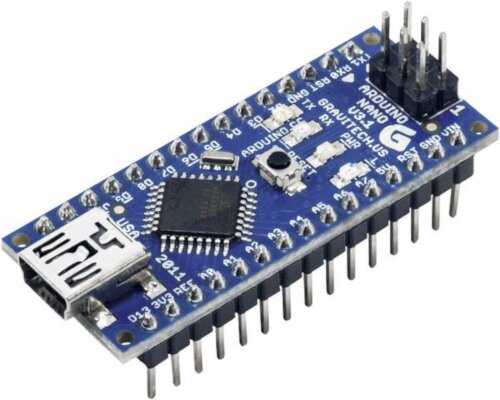ARDUINO: What is it?
published: 16 May 2019 / updated 1 February 2023
How to turn on or off electric heaters? Measure the temperature? Generate an alarm in the event of a leak? Or just have fun putting things together who are blinking, moving?
There are many devices that can do all that. But either they do not do not communicate, or the possibilities are limited. Or simply they are overpriced.
Micro-computer vs micro-controller
It is quite possible to recover an old PC, to put it an old version of Windows or Linux and add acquisition cards to achieve sophisticated automation.
But leaving a PC on, it consumes electricity. And he can plant, to interrupt after a power cut, etc ...
We even lost a PC due to an electrical overload caused by lightning!
The micro-controller solution
A microcontroller is an integrated circuit that brings together the essentials of a computer:
- a processor,
- several memories (read-only memory and RAM),
- Peripheral units and I / O interfaces.
Microcontrollers are characterized by a higher degree of integration, low power consumption, lower operating speed (from a few megahertz to more than one gigahertz1) and a reduced cost per compared to the versatile microprocessors used in personal computers.
For a single computer at home, you're surrounded by lots of micro-controllers: in home appliances, TV remote controls, digital answering machine, the Wireless keyboard of your PC ...
Despite its low clock speed, a few tens of megaherz for micro-controllers the simplest to 1 Ghz for the most efficient, the fact that these controllers do not have to manage a complex IT environment makes them able to react sometimes much faster than a high-end computer.
Here's a video that shows a totally useless and totally Artistic with the AtMega processor that equips Arduino boards:
The source codes and schemas of this application are available here:
github.com/VectStudio/LED_CUBE
What does not a micro-controller do
A micro-conroller performs simple tasks: manage relays, LEDs, motors ... It tests the environment: light, temperature, humidity, contactors, potentiometers, joysticks, etc ...
A microcontroller does not replace a computer. Do not think of embarking a operating system and stick there a hard drive, a keyboard, a screen.
On the contrary, despite its modest appearance, a micro-controller will find its place in the control of devices as varied as:
- manage the motor of an electric bike;
- manage the temperature and watering of a greenhouse;
- a rolling or even flying drone;
- management pool pump according to sun;
A company had several floors of offices to be cleaned regularly. The Common areas were managed by a conventional timer. The problem, for the cleaning staff is that during the cleaning of these corridors, it is necessary to regularly support on the timer button.
A technician a little inventive replaced the classic timer with a system using a micro controller. Programming consists of allowing a sequence long lighting period if the timer knob is pressed twice or more for at least two seconds. Long press for two seconds while the lights are on and off.
Ordinary employees unaware of the existence of the double long press triggered ignition by simple support. They were entitled to 30 seconds of light.
The cleaning staff was allowed 10 minutes of lighting.
The ARDUINO solution
ARDUINO is an electronic card that carries a micro-controller and the interfaces for retrieving information and controlling devices.
There is not an ARDUINO card, but several very different cards all articulated around the same concept: a basic map on which we add the necessary accessories to the projects to create.
For example, the ARDUINO Mega card:

This card is available around 10 euros each.
For example, the ARDUINO Nano card:

This card is available between 2 to 15 euros each according to the memory characteristics.
Why use ARDUINO?
If you have a certain taste for programming, which you like to tinker with, ARDUINO is for you!
ARDUINO is programmable in C language. It is possible to use other languages: BASIC or FORTH.
An ARDUINO starter kit will give you a wealth of accessories for editing simple applications.
Even with very limited knowledge in electronics, self-study through the various examples will allow you to climb quickly in skills and to consider more personal projects for useful or fun purposes.
see: Arduino Starter Kit
